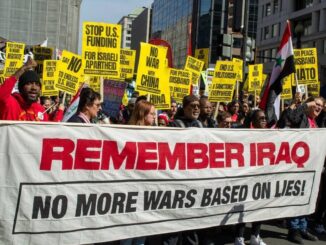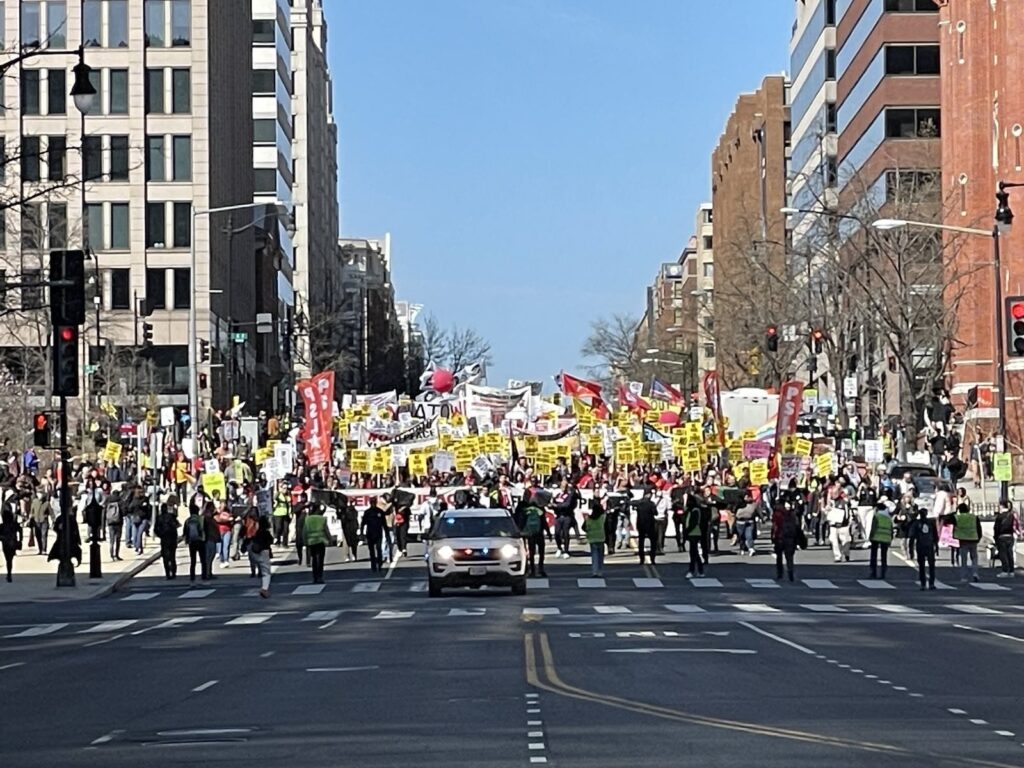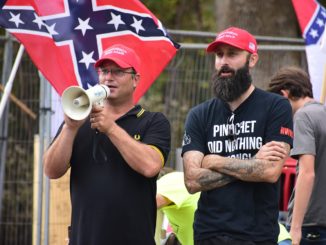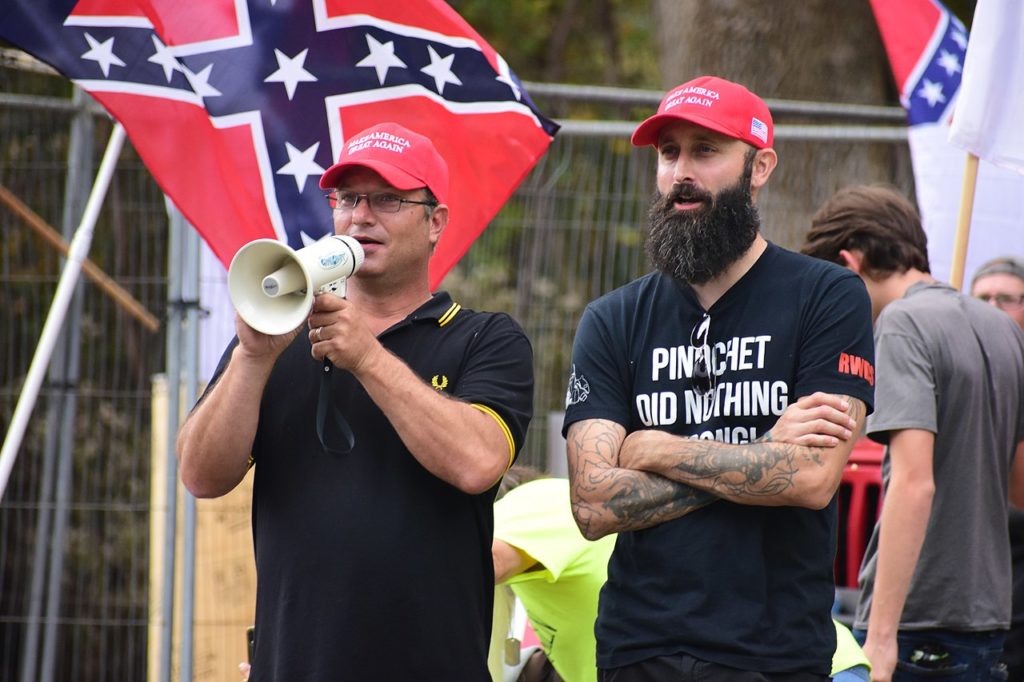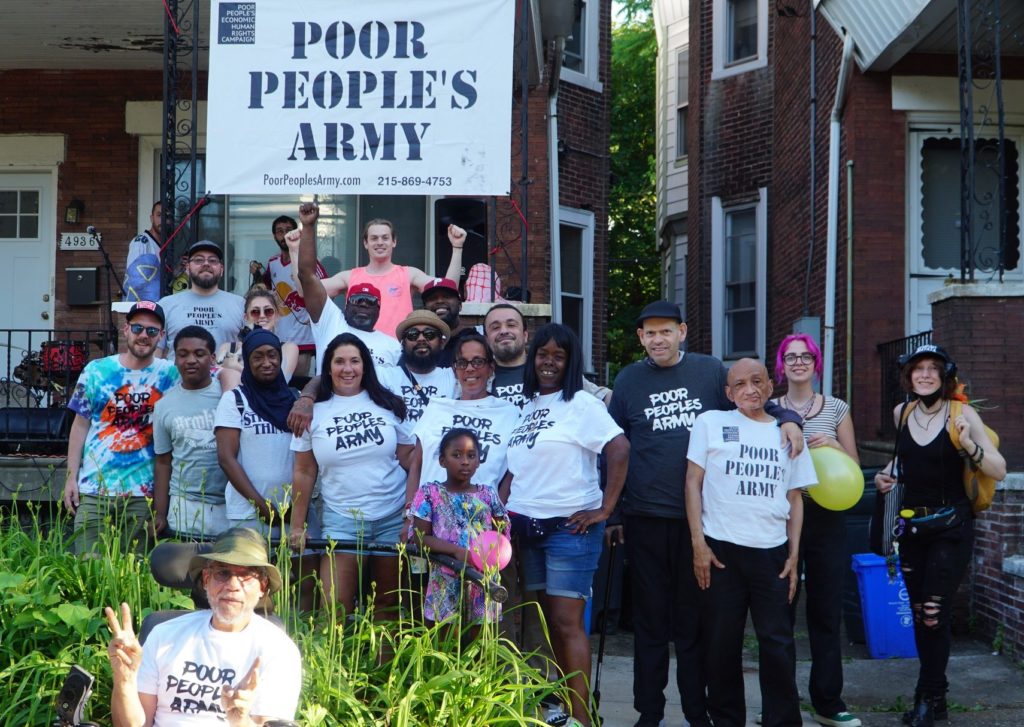
JUNE 18, 2022—Two U.S.-based organizations announced Thursday in a virtual press conference that they are joining forces to grow the Poor People’s Army, a poor and working-class grassroots initiative started in Philadelphia. The announcement came just days before the more widely recognized Poor People’s Campaign (PPC) planned to hold its “Moral Assembly,” a series of events that includes a march today in Washington, D.C.
Spokespeople for the Black Alliance for Peace (BAP) and the Philadelphia-based Poor People’s Economic Human Rights Campaign (PPEHRC) said they have reached out for years to develop relationships with PPC. The Reverend Dr. William J. Barber has been the face of the organization since it launched in 2017. The campaign calls for a “moral movement” to address the increasing wealth gap in the United States. PPC cites 140 million poor and “low-wealth” people, which is 42 percent of the U.S. population.
Today’s march is called the “Mass Poor People’s and Low-Wage Workers’ Assembly and Moral March on Washington and to the Polls.” It is expected to draw thousands from across the United States.
However, BAP and PPEHRC spokespeople said U.S. poverty will not be eradicated until people are independently organized to challenge the power of finance capital and disengage from the Democratic and Republican parties.
“One cannot have one foot in the establishment, echoing its most backward positions on issues like the war in Ukraine,” said BAP National Organizer Ajamu Baraka during Thursday’s press conference, “and the other foot with the people, declaring solidarity with the people, [who are] suffering from the rapacious greed and violence of a ruling class operating through the two capitalist parties.”
Thursday’s joint press conference was titled, “Thinking Beyond Ukraine: Their War Is Not Our War.” BAP and PPEHRC sought to call attention to the $54 billion the U.S. Congress has allocated since January to the Ukrainian state, amid a weapons buildup and the illegal expansion of the North Atlantic Treaty Organization (NATO) toward Russia’s borders. Activists have pointed out the COVID-19 pandemic could be addressed in the United States with $16 billion, while $60 billion per year in federal housing vouchers may solve the U.S. homelessness crisis.
“How dare we stand by as billions are spent on war when children all over the world, and here in Kensington [a Philadelphia neighborhood], go without water, health care, food or a place to lay their heads tonight,” said Cheri Honkala, PPEHRC’s founder. Honkala is known for helping homeless people occupy empty houses, which she first did as a homeless mother in the 1980s.
"We are calling for the restructuring of society. I've lost seven people people this year and they were all preventable deaths…That's why we will be making these plans for what changes we need to make at this Bootcamp this summer." -Cheri Honkala
— Poor People’s Economic Human Rights Campaign (@PPEHRCorg) June 16, 2022
PPC cites the Reverend Dr. Martin Luther King, Jr., as its inspiration.
However, activists have said King was assassinated in 1968, exactly one year after he denounced the U.S. war on Vietnam in his famous Riverside Church speech. That is also when he dubbed the “three evils” of U.S. society: Materialism, militarism and racism. Baraka and Honkala said PPC does not name those concepts in its work.
Baraka went on to say the BAP-PPEHRC joint venture does not intend to create “antagonism” with PPC, but the groups felt it was necessary to point out where they draw the line. BAP and PPEHRC use the People(s)-Centered Human Rights (PCHR) framework he developed in an effort to put a name to the work of mass-based grassroots movements throughout the Global South, including the U.S.-based Black Liberation Movement of the 1960s and ‘70s.
“The PCHR framework does not pretend to be non-political,” Baraka said. “It names the enemies of freedom: The Western, white-supremacist, colonial-capitalist patriarchy.”
The spokespeople at Thursday’s press conference also said PPC will not be able to lead an independent movement because of its foundation ties. Honkala often can be heard railing against the “non-profit industrial complex,” which includes many large foundations that fund non-profit organizations. These groups drop the ball on societal challenges they claim to want to address because they wind up doing the bidding of the Democratic Party, she told press conference attendees.
Honkala also said Barber’s partner in launching PPC, the Reverend Dr. Liz Theoharis, was once an intern at Honkala’s organization. A Toward Freedom inquiry to PPC went unanswered.
“This movement will not be funded by foundations or corporations,” said the Reverend Keith Collins, a PPEHRC organizer in Philadelphia who also spoke Thursday. “It must be a people-driven revolution and it needs faith leaders in compliance with the movement.”
The spokespeople said those who are interested in learning how to help expand the Poor People’s Army to cities beyond Philadelphia can sign up for a three-day boot camp being held near the city August 12-14. Honkala encouraged people in other cities to request a boot camp by contacting [email protected].
Honkala also dismissed the effectiveness of marching in Washington.
“We will no longer get on buses and beg leaders to change the conditions,” she said.
Julie Varughese is editor of Toward Freedom.

